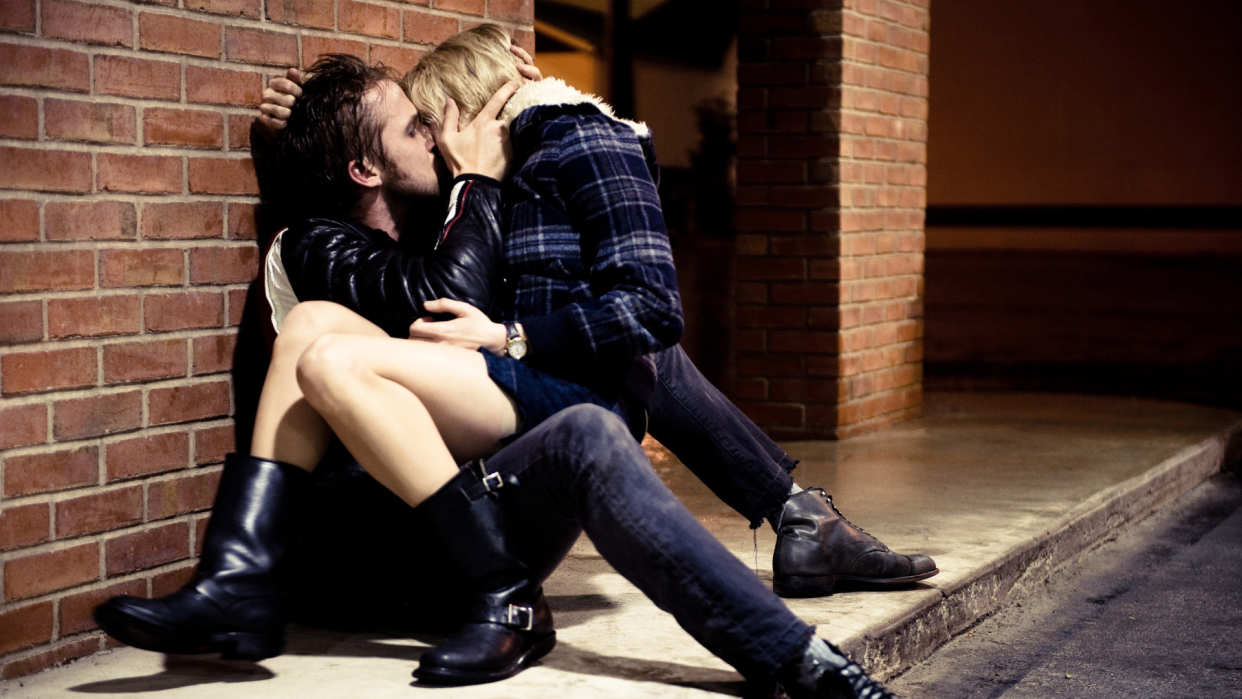‘Blue Valentine’ Writer/Director Derek Cianfrance Was Convinced the Script Was ‘Cursed’ for More Than a Decade

- Oops!Something went wrong.Please try again later.
- Oops!Something went wrong.Please try again later.
The intensely poetic dark passion behind “Blue Valentine” seeped into even its road to the big screen, according to writer/director Derek Cianfrance.
During IndieWire’s “Screen Talk” live at the New Directors/New Films festival, presented by Film at Lincoln Center and the Museum of Modern Art, Cianfrance told podcast co-hosts Ryan Lattanzio and Anne Thompson that he believed the project itself was “cursed” for more than a decade due to its stalled production process. Ryan Gosling and Michelle Williams eventually were cast as an ill-fated married couple struggling to maintain their love across years together.
More from IndieWire
Cianfrance began writing the script for the Oscar-nominated feature while at Sundance 1998 after the premiere of his debut film “Brother Tied.” It took him 12 years and 66 script drafts until “Blue Valentine” was finally released in 2010.
“For ‘Blue Valentine,’ I spent so many years [on it]. People said, ‘Just make the movie,'” Cianfrance said. “For me on that movie, I had to shoot it half on film and half of that movie digitally because that was part of what I was dealing with in that film. It was a duet between love and hate, between husband and wife, and it was also between film and digital. So I needed a certain budget to shoot film on that.”
Cianfrance first believed that he would go into production on “Blue Valentine” immediately following his Sundance debut. Yet he quickly learned about the “leapfrogging process of rejection” in Hollywood that plagued the script for the next 12 years.
“Eventually in the midst of that, I got the script to Michelle Williams. She loved it. OK, now I have this script. It’s draft 30. I got Michelle Williams, she had just come off of ‘Dawson’s Creek.’ She’s going to be
great for the movie. No one would give me money,” Cianfrance recalled. “If I had Katie Holmes, I might have money. And so I felt cursed. I went back to the drawing board, wrote it again, wrote it again.”
The time jump proved to be another hurdle for casting, with Gosling being skeptical over his own ability at the time to portray both a young and in-love Dean in addition to the more hopeless version clinging to his wife Cindy (Williams). Thus began Cianfrance and Gosling’s first collaborative decision to propose filming half of “Blue Valentine” first and waiting years to chronologically shoot the second portion with the time jump.
“Eventually I met Ryan [Gosling]. When I first met Ryan, he loved the script, but he thought he couldn’t play the older guy. He didn’t think he could play the second half of his character,” Cianfrance said. “And I said, well, why don’t we do this? Why don’t we just shoot the past, the young part, now and then we’ll wait six years and we’ll do the present. And he was like, ‘Oh my God, that’s the greatest idea ever.’ And so we had a high five, and that’s how Ryan and I really connected because we both believed in a crazy process idea.”
Cianfrance admitted that both he and Gosling’s respective agents weren’t too pleased, though.
“We both went back to our agents or our managers and producers and told them, ‘Hey, we’re going to do it. This is how we’re going to do it.’ And they all thought we were crazy,” Cianfrance remembered. “And they said, ‘No, you’re not going to do it. No one will give us money for that.'”
All of those delays turned out to be a “blessing” for the production itself, as Cianfrance reflected on.
“Eventually what happened was timing worked out. By the time we shot it in 2009, Ryan was now old enough to play both versions. Michelle now had a child. So she knew also what it was like to be a mother, which would inform that character. And it just became a blessing,” Cianfrance said. “What was a curse for so many years became a blessing. [That film] was a lightning strike. It only happens one time. The moments where Ryan was in his life, where Michelle was in her life, where I was in my life, where the entire crew was, there was an alchemy that happened.”
He added, “I’m still thankful the industry rejected me on drafts one through 65 because — and I felt cursed for all that time. But I think it’s just hard and it’s supposed to be hard. And I think the pressure and the resistance and the rejection is just a crucial part of art.”
As Cianfrance summed up, “If you’re really stubborn, you’ll be able to find a way to make a movie.”
The filmmaker is currently a producer of “Exhibiting Forgiveness,” Titus Kaphar’s feature directorial debut which is part of the New Directors/New Films program after premiering at the 2024 Sundance Film Festival.
Stay tuned for more in conversation with Derek Cianfrance on “Screen Talk,” launching this week on podcast platforms.
Best of IndieWire
The Best LGBTQ Movies and TV Shows Streaming on Netflix Right Now
Guillermo del Toro's Favorite Movies: 54 Films the Director Wants You to See
Nicolas Winding Refn's Favorite Films: 37 Movies the Director Wants You to See
Sign up for Indiewire's Newsletter. For the latest news, follow us on Facebook, Twitter, and Instagram.

